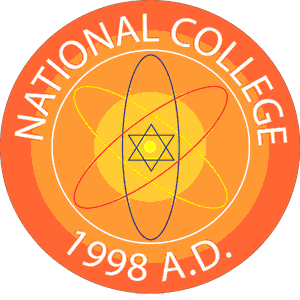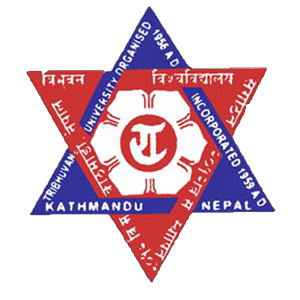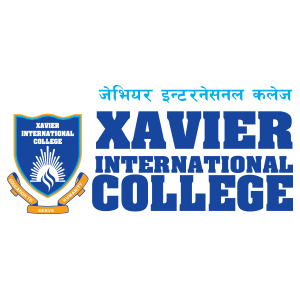Overview
BSc Microbiology at Amrit Science Campus, Kathmandu (affiliated with TU)
Course Overview:
BSc Microbiology at Amrit Science Campus is a four-year undergraduate program that studies microorganisms and their applications in various fields. The program provides students with a strong microbiology foundation, including studying microorganisms, microbial physiology, immunology, genetics, and biotechnology.
Course Outlines:
The BSc Microbiology program covers various subjects, including General Microbiology, Medical Microbiology, Industrial Microbiology, Environmental Microbiology, Microbial Genetics, Virology, Immunology, and Biotechnology. The curriculum includes both theoretical knowledge and practical skills.
Duration:
The BSc Microbiology program is four years, divided into eight semesters.
Objectives:
The main objectives of the BSc Microbiology program are to:
-
Provide a comprehensive understanding of the fundamental principles and concepts of microbiology.
-
Develop practical skills in laboratory techniques, microbial identification, and microbial culture maintenance.
-
Foster critical thinking and analytical skills for problem-solving in the field of microbiology.
-
Familiarize students with the applications of microbiology in various sectors, including healthcare, industry, and environmental conservation.
-
Prepare students for further academic pursuits or careers in microbiology-related fields.
Eligibility:
To be eligible for admission into the BSc Microbiology program at Amrit Science Campus, applicants must have completed the Higher Secondary Education (10+2) or equivalent degree in the Science stream with a minimum of second division marks.
Fee Structures:
Interested applicants can contact the administration office of Amrit Science Campus for detailed information regarding the fee structures.
Learning Outcomes:
Upon completion of the BSc Microbiology program, graduates will be able to:
-
Demonstrate a comprehensive understanding of microorganisms' structure, function, and behavior.
-
Perform laboratory techniques and experiments to isolate, identify, and analyze microorganisms.
-
Apply knowledge of microbiology to solve practical problems and address issues in various sectors.
-
Demonstrate effective communication skills for presenting scientific findings and research outcomes.
-
Understand the ethical and safety considerations in working with microorganisms.
Scope:
Graduates of the BSc Microbiology program have many career opportunities. They can work in various sectors, including healthcare, pharmaceuticals, the food industry, research laboratories, environmental agencies, and quality control laboratories. Additionally, there are opportunities for further specialization through postgraduate studies.
Career Prospects:
Some of the career prospects for BSc Microbiology graduates include:
-
Microbiologist
-
Clinical Laboratory Scientist
-
Quality Control Analyst
-
Research Assistant
-
Food and Beverage Technologist
-
Pharmaceutical Sales Representative
-
Environmental Consultant
-
Public Health Officer
Career Options:
Graduates of BSc Microbiology have diverse career options, including:
-
Medical and Diagnostic Laboratories
-
Pharmaceutical Companies
-
Food and Beverage Industry
-
Research Institutions
-
Public Health Departments
-
Environmental Agencies
-
Quality Control Laboratories
Scholarship:
Amrit Science Campus may offer scholarships or financial assistance to deserving and eligible students. Scholarships can be based on academic merit, financial need, or other criteria. Interested applicants are encouraged to inquire about scholarship opportunities at the administration office for detailed information.
Why Choose this Course:
There are several reasons to choose the BSc Microbiology program at Amrit Science Campus:
-
Growing Field: Microbiology is rapidly expanding with significant advancements and applications in various industries, making it a promising career choice.
-
Broad Career Opportunities: Graduates have diverse career options in the healthcare, research, industry, and environmental sectors, which provide them with many professional opportunities.
-
Practical Experience: The program emphasizes practical skills development through laboratory work, allowing students to gain hands-on experience handling microorganisms, performing experiments, and analyzing data.
-
Industry-Relevant Curriculum: The curriculum is designed to align with industry needs, ensuring graduates possess the knowledge and skills employers require in microbiology.
-
Research Opportunities: Students can participate in research projects, contributing to advancing knowledge in microbiology and gaining valuable research experience.
-
Faculty Expertise: The faculty members at Amrit Science Campus are experienced and knowledgeable in microbiology. They provide quality education and mentorship to students.
-
Networking and Collaboration: The campus fosters a collaborative environment where students can interact with peers, faculty, and professionals in the field, building valuable connections for their future careers.
By choosing the BSc Microbiology program at Amrit Science Campus, students can embark on an exciting journey of exploration and discovery in the fascinating world of microorganisms. They will gain in-depth knowledge, practical skills, and the confidence to pursue rewarding careers in microbiology.
Contact Amrit Science Campus's administrative office for detailed information on the BSc in Microbiology course, including fees, scholarships, facilities, counseling, eligibility criteria, etc.







-9075.jpg)











